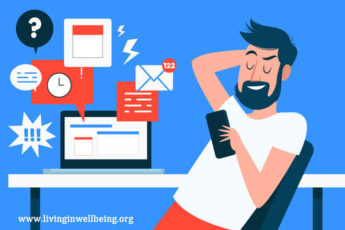
The dusty tennis shoes. The gym membership that mostly exercises your wallet. The jump rope coiled at the back of the closet. Lots of us have proof that it can be tough to stick with exercising. Pump up your resolve by considering that exercise can:
prevent heart disease and high blood pressure
lower your risk for stroke, osteoporosis, colon cancer and diabetes
Exercise improve your sleep
increase your energy
decrease some kinds of pain
boost your immune system
help with weight management
Exercise matters for your mood too. Millions of people have found it:
decreases stress, anger and tension
reduces anxiety and depression
offers a greater sense of well-being
It's not clear exactly how exercise boosts mood, but experts say it:
relieves pent-up muscle tension
stimulates feel-good hormones
burns off stress hormones
increases blood flow to the brain
Sweating: The Details
Sure, lots of us would rather serve cookies than tennis balls and would rather channel-surf than surf. But some tips can make exercising easier. For one, you don't have to join a glitzy gym: Lots of city recreation departments, senior centers and YMCAs have great equipment and fun classes (salsa dancing, anyone?) at reasonable rates. Also find out if you can hit the track at your local high school.
Here's some more helpful information to strengthen your ability to exercise:
How Much Exercise Do You Need?
For your overall health, the American Heart Association recommends
at least 30 minutes of moderate aerobic activity (think walking or a leisurely bike ride) five days a week PLUS strength training twice a week.
OR
at least 20 minutes of vigorous aerobic activity (like jogging or a challenging bike ride) three days a week PLUS strength training twice a week.
The Centers for Disease Control offers more detailed guidelines.
A little twist on the rules: Though 20- or 30-minute sessions may be ideal for health and mood, experts say that you can get plenty of benefit from exercising in just 10-minute spurts too.
For your mood, aim for 30 to 60 minutes of aerobic exercise or a combination of aerobic exercise and muscle-strengthening three to five days a week. Some research shows that even lower levels of activity may offer mental health benefits, according to the U.S. Department of Health and Human Services.
Exercise Essentials
Before starting to exercise, it might be a good idea to check with your doctor if you haven't been active in awhile. Also, you'll likely need to build up slowly. The first week you might try walking on two days for 15 minutes each. Then you can gradually increase the number of days and minutes per session over a few weeks. The Mayo Clinic provides a timeline.
Ready, set, don't go until you gently warm up your body. Starting slowly gives your muscles and joints a chance to loosen, which prevents injuries. Around five or 10 minutes of warm-up usually is enough.
Go, but as you work out, remember moderation. Don't push yourself to the point of pain, dizziness or shortness of breath.
Cool down by moving more slowly for around five or 10 minutes to bring your heart rate and body temperature back to normal.
Stretch to relax the muscles you've taxed. Don't force past the point of tension and don't bounce. Check out some model stretches.
Drink water before, during and after a workout. If you wait until you're thirsty, you're already getting dehydrated.
Squeezing in Some Exercise
No time for a major workout? Just break your exercise into 10-minute chunks-and break up some blah parts of your day too. Try
really running errands: Walk a bit faster or further in the parking lot when you stop at the store.
playing: Race the kids. Shoot some hoops. Remember, you don't have to be good to get fit.
scrubbing: Instead of a few wipes heres harder to break a commitment to someone else than to ourselves.
Figure it out. Think about what's really stopping you and then find alternatives that address those problems. Maybe you're too tired at the end of the day: Try working out in the morning instead. Maybe you're intimidated by the beefy set at the gym: Consider working out at home. (Lots of exercise routines are available online, including some free workouts.)
If you drop the ball, pick it up. It would be a shame to give up entirely just because you missed a few days--or even a few weeks. Remember to acknowledge yourself for any steps forward, no matter how small.
Reward yourself. Yes, sticking to your goals is its own reward, but a little gift is pretty good too.












